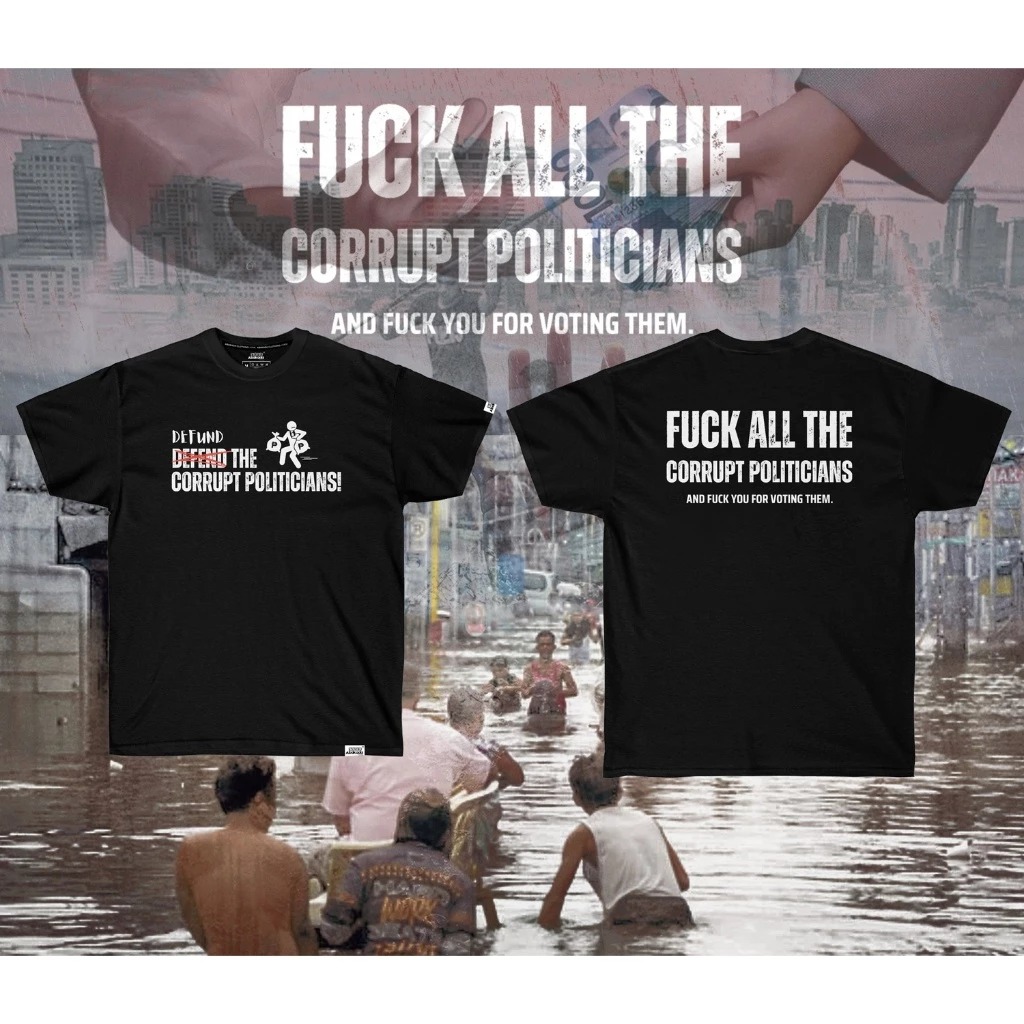News
Fuck All the Corrupt Politicians and Fuck You Voting Them: T-Shirt Meaning and Cultural Impact
Fuck All the Corrupt Politicians and Fuck You Voting Them: T-Shirt Meaning and Cultural Impact
Introduction: When Fashion Becomes Protest
Fashion has always been political. From slogan T-shirts in the 1960s civil rights marches to punk-era ripped band tees, clothing has served as both armor and billboard. One of the most confrontational and unapologetic entries in this tradition is the shirt reading:
“Fuck All the Corrupt Politicians and Fuck You Voting Them.”
This T-shirt is more than a piece of cotton—it’s a statement of rage, disillusionment, and rejection of a system many perceive as broken. In this article, we will unpack the meaning behind the phrase, explore its connection to global anti-corruption sentiment, and examine why bold, obscene slogans continue to resonate in today’s divided political climate.
1. The Rise of Slogan T-Shirts in Political Expression
Before diving into the specific slogan, it’s worth understanding how T-shirts became a vehicle for protest.
- 1960s–70s: Anti-war and feminist movements used shirts to display solidarity.
- 1980s: Punk and hardcore bands adopted anti-establishment messages.
- 2000s–present: Social media fueled viral slogans like “Nevertheless, She Persisted” and “Black Lives Matter.”
The controversial “Fuck All the Corrupt Politicians” shirt fits neatly into this lineage: it’s raw, emotional, and unfiltered.
2. Breaking Down the Slogan
The shirt delivers its message in two parts:
- “Fuck All the Corrupt Politicians”
This is a direct attack on political leaders—across parties—accused of corruption, self-dealing, or betraying public trust. - “And Fuck You Voting Them”
This goes a step further, blaming not just leaders but also the electorate who continues to empower them. It suggests frustration not only with systemic corruption but also with voter complicity.
Together, the slogan rejects the idea of passive blame, pointing fingers at both power structures and citizen responsibility.
3. The Meaning Behind the Anger
So, what does this slogan actually mean?
- Disillusionment with democracy: It reflects the belief that elections are failing to bring real change, and that corrupt politicians keep winning because of voter apathy or blind loyalty.
- Anti-establishment sentiment: Similar to Occupy Wall Street or European populist protests, it calls out “the system” rather than a single party.
- Accountability demand: It insists that people stop excusing corruption and take responsibility for their choices.
In essence, the T-shirt is a wearable manifesto of frustration—angry at both the ruling class and the masses that enable them.
4. Global Context: Why This Resonates Worldwide
Though the phrase is in English, the sentiment is global. From Washington to Paris, from Manila to Brasília, corruption scandals plague governments. Citizens see headlines about embezzlement, misuse of power, or lobbyist influence, while everyday people struggle.
The slogan resonates in countries where:
- Politicians are caught in financial scandals.
- Voter turnout remains high but systemic change is minimal.
- Citizens feel trapped between “lesser evil” choices.
This universality explains why such shirts sell well internationally on online platforms.
5. Humor, Shock Value, and Vulgarity
Part of what makes the shirt effective is its vulgarity. The double “fuck you” is not subtle—it’s deliberately shocking.
- Humor: For some, it’s funny precisely because it’s so blunt.
- Shock factor: It grabs attention in crowds, rallies, or casual settings.
- Authenticity: Vulgar language conveys raw emotion, signaling that this isn’t polite debate—it’s anger boiling over.
This aligns with internet meme culture, where edgy humor often delivers serious critiques.
6. Who Wears It, and Why?
The shirt appeals to a wide range of wearers:
- Activists: Those involved in protests use it as part of their toolkit.
- Young voters: Especially Gen Z and millennials, who often feel cynical about politics.
- Everyday citizens: People fed up with inflation, corruption, or broken promises.
Wearing it is not just about fashion—it’s about broadcasting a worldview. It’s a conversation starter, sometimes even a confrontation starter.
7. Criticism and Controversy
Not everyone embraces this kind of slogan.
- Too aggressive: Critics argue it shuts down dialogue rather than promoting solutions.
- Disrespectful to democracy: Some see it as dismissive of the voting process itself.
- Potentially divisive: Instead of uniting people against corruption, it may alienate those who feel personally attacked for their votes.
Still, defenders argue that anger has a place in politics, and polite slogans rarely capture attention the way raw ones do.
8. From Streetwear to Mainstream Visibility
Like many protest slogans, this shirt migrated from activist circles to broader streetwear. Independent print shops, Etsy sellers, and online merch stores embraced it.
- Designs vary: Some feature bold red fonts, others include graphics like ballot boxes or broken Capitol domes.
- Celebrity influence: Musicians and influencers sometimes amplify such slogans by wearing them publicly.
- Fashion meets politics: It aligns with a trend of blending political commentary with casual wear, making activism part of everyday life.
9. Comparing with Other Political T-Shirts
The shirt is part of a wider genre of politically explicit tees:
- “Tax the Rich” (popularized by AOC’s dress at the Met Gala).
- “Make America Great Again” (Trump-era slogan turned merch empire).
- “Defund the Police” (activist-driven apparel during 2020 protests).
Compared to these, “Fuck All the Corrupt Politicians” is less about proposing policy and more about venting anger.
10. Conclusion: A Shirt That Speaks What Many Feel
The “Fuck All the Corrupt Politicians and Fuck You Voting Them” T-shirt is not polite, and it’s not meant to be. Its meaning is clear: disillusionment with corrupt leaders and frustration with voters who perpetuate the cycle.
As crude as it is, the slogan reflects a raw truth: millions of people worldwide feel betrayed by politics. Whether worn at protests, rallies, or simply on the street, the shirt transforms private anger into public expression.
In the end, it’s not just fashion—it’s a symptom of a society grappling with broken trust in institutions

